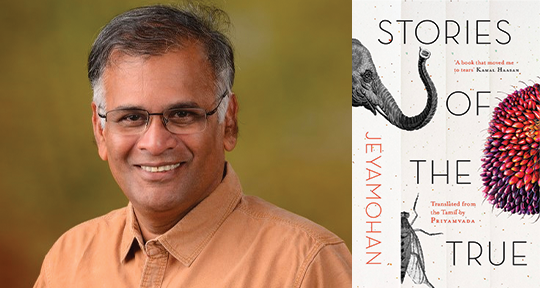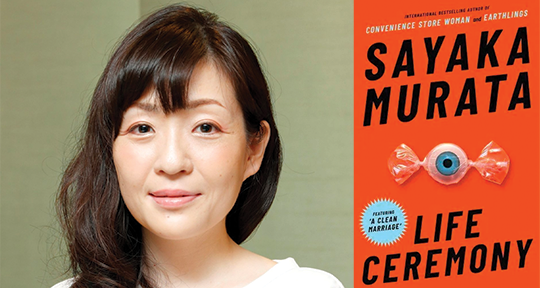Stories of the True by Jeyamohan, translated from the Tamil by Priyamvada, Juggernaut Books, 2022
Aram—this was the original Tamil title of Jeyamohan’s collection of short stories first published in 2011, recently released in Priyamvada’s English translation as Stories of the True. Priyamvada deems aram a complex word, even going as far as to call it untranslatable. In other contexts, aram has been rendered as “virtue” or “ethics,” and while the former is possibly the closest in meaning, Priyamvada notes that “aram seems . . . a far more capacious word than ethics.” The familiar Sanskrit word “dharm”’ might be a near-perfect equivalent, and it has a Tamil variation as well, but Priyamvada resisted inserting Hindi or Sanskrit words in place of the Tamil, even if they would be relatively well-known and understood by English readers. This is in part her way of dissenting against the infamous political project of promoting Hindi as a national language, autocratically imposed in an attack on linguistic pluralism. Similarly, this choice served to geographically, culturally, and linguistically ground the stories in Southern India. She writes, “It wasn’t just the stubbornness of someone from the south of the peninsula, but I felt it takes away from the ‘place’ of the stories to be using terms from a different part of the country.”
In her search for a fitting translation of Aram, Priyamvada allowed herself to be guided by the stories themselves and to explore all the “dimensions of aram” that these narratives depicted, as well as the range of ethical codes they encompassed. However, it would be simplistic to consider them, in her words, “simple expositions of virtue.” She writes: “Reaching beyond the understanding of ethics as dichromatic, immutable codes of conduct, the narratives delve into deeper and more complex internal dilemmas . . . It is in this quest that the stories move from podhu-aram, a collective dharma, to thannaram or swadharma, the dharma of an individual.” In her estimation, the stories in this collection feature a mix of characters, some of whom have already finished their journey of self-discovery and some who are still on the way. Among the former, they are distinguished by “their steadfast adherence to ‘their truth,’” and for the latter, by “these ‘moments of truth’ [that] also stand illuminated.” In a nutshell: “The stories hold in tension a truth realized, and a truth to be discovered.” READ MORE…



